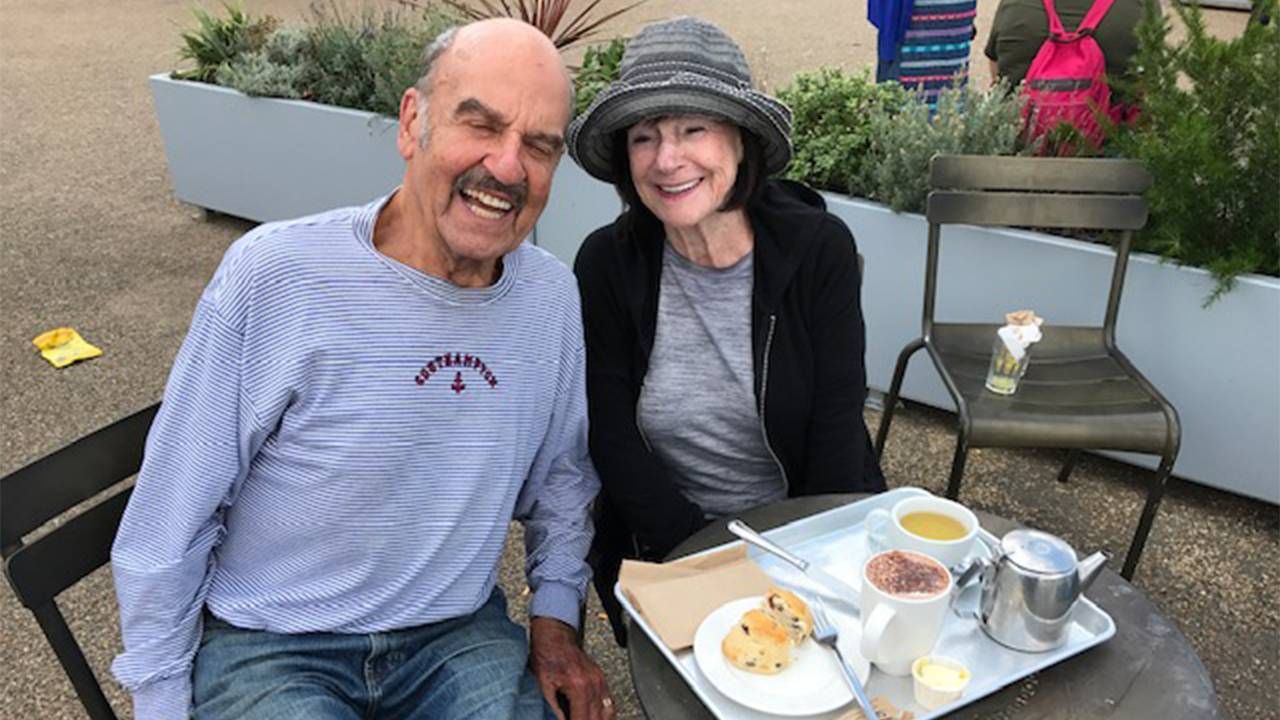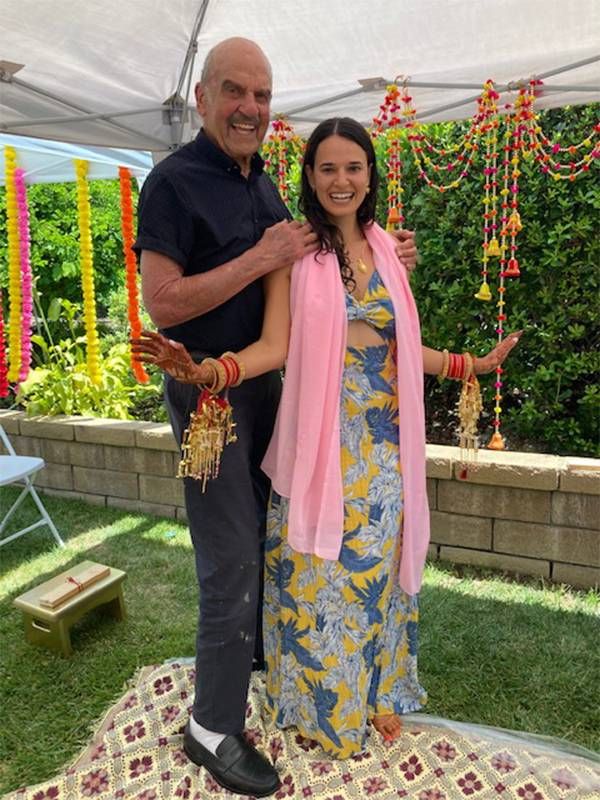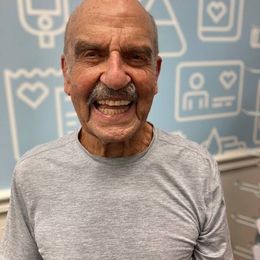A Promise I Made in The Depression Helped Me Emerge Stronger in the Pandemic
At 91, I'm finally making good on my promise to my aunt
In 1936, I made a promise to my aunt after men shouting "You've been dispossessed" stormed into my family's Bronx, N.Y. apartment. During the pandemic, 85 years later, that promise helped me enormously.

Back in 1936, I was six and couldn't understand why my parents didn't stop the landlord's men from carrying my bed into the street. As the last of our possessions were being carried out, my mother's youngest sister who lived with us to share the rent strode into the apartment. She thrust a fistful of bills at the landlord and said, "Bring back that furniture and get out of here!"
I learned years later the aunt I called "Sis" had pleaded with her boss to pay her two weeks' wages in advance — $37 — so she could settle the month's rent.
What I saw in that apartment seared itself into my consciousness. Here were three adults experiencing the same assault. My father could have sent Sis tumbling with a flick of his wrist. But he and my mother cowered against the wall while Sis charged at the landlord.
Even today, I can still see the looks exchanged in that apartment, the landlord's nod of respect to my aunt and his contempt for my parents.
What Aunt Sis Made Me Promise
When the landlord and his men left, Sis led me to the bedroom we shared with my little brother. She told me to sit on my bed before kneeling in front of me, saying "Bobby, don't ever forget what you saw here today. This is not the only bad time you will live through. Some people quit when things go bad, others fight. Promise me you will always fight."
"Some people quit when things go bad, others fight. Promise me you will always fight."
I had made other promises, to look both ways before crossing the street and to be more patient with my brother. But the way Sis knelt to lock her eyes onto mine told me I was being asked to make a different kind of promise.
It was as though she were speaking not to me, but to someone much older. I wasn't sure exactly what I was promising, but I knew I couldn't disappoint her. I told her I wouldn't quit when things got bad.
I thought of Sis when the pandemic struck and I began hearing the same words that tormented my family and our neighbors during The Depression: "I've been laid off." "We don't have the month's rent." "People are waiting on line for hours to be given food!" "We just got a doctor's bill and the electric bill and can pay only one." "Is this thing ever going to end?"
It was as though I was again hearing my mother's soft voice tighten as she pressed coins into my hand, saying "See if the grocer will sell you four eggs; we can't afford a dozen."
In 2020, the uncertainty that had drained oxygen from the air when I was a child was again making it difficult for people to take a full breath.
Sis would have considered a raging virus a bad time, one she would expect me to fight. But I was now 91 and Muriel, my wife of 66 years, had died suddenly and unexpectedly just before the pandemic. I was alone and hollowed out by grief.
Keeping My Promise in the Pandemic
I doubted I had within me the resources and will to do battle one more time. I feared I was beginning to look like my father as he huddled against the wall while we were being evicted.
With little to do but allow my mind to pull me wherever it chose, I found myself recalling other bad times I experienced between The Depression and the pandemic. Like others of my generation, I'd served in a war, struggled with recessions and raised a family in the turbulence of the '60s and '70s. The surge of pride I felt in the way I carried myself through adversity made me impatient with how I now slumped when I walked.

It was time, I realized, to keep my promise and begin fighting the pandemic as Sis had fought The Depression. But how could I challenge a virus that circled over older people like a vulture?
As brave as she was, Sis must have known she was no match for something as massive as The Depression. That must have been why she put the landlord's face on all that was collapsing around us. He was someone she could fight.
I would have to find something within the pandemic that was more my size. My courage seemed to warm in the daylight, but chilled at night when loneliness stalked into my bedroom. For me, the enemy wasn't the pandemic; it was the loneliness that rode its back into my home. That was something I would have to fight.
I began by strengthening my body and mind for the struggle that lay before me. With gyms closed, I exercised in my living room, doing push-ups, squats, lunges, planks and crunches that would have taxed me 30 years ago.
But before the squats and planks, I would have to get out of bed. What was the point of a day without Muriel? Setting foot on the floor of my bedroom felt like stepping on shattered glass.
Then, I remembered something I'd read years before by a Buddhist monk who imagined a soothing current flowing through his body as he lay in bed before arising. Perhaps that would help me see the day as more than leaving my empty bed for other empty places.
These days, I lay in bed for 10 to 15 minutes every morning, visualizing sunlight coursing through me. I miss Muriel terribly, but get up warmed by memories that carry me through the day.
What I Do Differently Now
As the pandemic has endured, I've sought other ways to keep my promise to Sis. When I leave the house, I check my reflection in store windows to make certain I'm walking erect. I establish blocks of time to exercise, meditate, cook, mentor young entrepreneurs, Zoom university classes and meet safely with my children, grandchildren and a few close friends.
For the first time in months, I now feel the faint hint of confidence stirring within me.
No epiphany, no burst of wisdom helped me through the pandemic.
Our now daily calls end with each syllable of "I love you" stressed as though etched.
It was the strength I found within myself and in moments emblematic of kindness and hope.
It was a friend calling and saying: "I don't like the sound of your voice. I'm coming over. Meet me outside and let's talk."
It was the change in the calls with my children. Before the pandemic, our weekly chats closed with a hasty "Love ya." Our now daily calls end with each syllable of "I love you" stressed as though etched.
Vaccinations and the easing of restrictions have thankfully made it possible to embrace the people I love. This month, I will fly across the country to attend my granddaughter's wedding. Everyone in the family has been fully vaccinated and cannot wait to hug and kiss after 18 months exchanging feelings across the internet.
Sis would not have put me at risk by telling me to fight bad times if she hadn't seen in the little boy a hint of the man who she hoped he would become. I think she would be proud he emerged stronger from the pandemic, ready to fight whatever other bad times are massing over the horizon.


